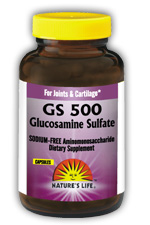Omega-3s improve energy in cancer survivors
Many people treated for cancer have lingering fatigue after therapy ends, which may be aggravated by chronic inflammation, doctors said. Omega-3s have reduced inflammation in healthy people, leading doctors to examine its effect in breast cancer survivors.
In this study, doctors measured the diets of 644 survivors with stage I to stage IIIA breast cancer, and followed up 39 months after diagnosis. Overall, 42 percent complained of being chronically fatigued three years after diagnosis. Women with the highest levels of C-reative protein (CRP), a sign of inflammation, were nearly twice as likely to be fatigued as women with low CRP levels.
When doctors looked at the ratio of omega-3s to omega-6s in the diet, women who got the most omega-3s compared to omega-6s were half as likely to be chronically fatigued as women who got the least omega-3s.
Vitamin B6 may help prevent postmenopausal breast cancer
Vitamin B6 helps maintain the health of red blood cells, the nervous system, and parts of the immune system. In this study, doctors measured circulating levels of vitamin B6 in 706 postmenopausal women before they were diagnosed with breast cancer and compared them to vitamin B6 levels in 706 healthy postmenopausal women. Compared to women with the lowest levels, women with the highest circulating levels of vitamin B6 were 30 percent less likely to develop invasive breast cancer. Doctors said these results suggest a role for vitamin B6 in preventing postmenopausal breast cancer.
Reference: Cancer Epidemiology, Biomarkers & Prevention; August, 2012, Electronic Prepublication
From the March 2013 newsletter

 a 10-year tracking period.
a 10-year tracking period.